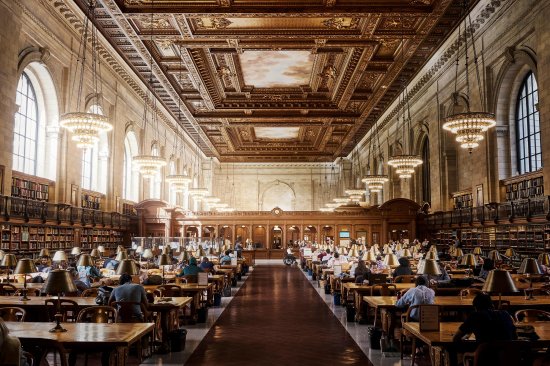
We must protect the right to read freely, writes ALA executive director Tracie D. Hall
The American Library Association was founded in 1876 with the mission “to enhance learning and ensure access to information for all.” The association’s formation occurred in an era when libraries were being established to directly address the fact that 20% of Americans 14 years and older had limited literacy: 11.5% of white teens and adults compared to 80% of Black teens and adults—many emerging from enslavement, which had legally penalized reading and writing. In addition to being a First Amendment right, reading actively and widely was seen as a pathway to individual agency, economic mobility, and civic engagement. And for industrialists and philanthropists like Andrew Carnegie and Julius Rosenwald, who funded the establishment of libraries in communities and on campuses, reading was considered a means to labor productivity and economic growth. True to this opinion, U.S. Senator Wendell Ford, a Kentucky Democrat who served from 1974 to 1999, observed: “If information is the currency of democracy, then libraries are its banks.”
[time-brightcove not-tgx=”true”]
Indeed, current usage studies indicate that libraries are among the most visited public service institutions, totaling more than 1 billion visits annually with users turning to libraries for critical educational services in addition to books. In recent years, as many as 118 million participants have taken part in nearly 6 million programs focused on early and family literacy, digital literacy instruction, after-school homework support and summer reading programs for youth, adult literacy and basic education, career readiness, small business development, arts and humanities programming, English for Speakers of Other Languages instruction, and special programs for adults navigating memory loss and reentry after incarceration. And, when well-equipped and adequately staffed by trained library professionals, school and academic libraries have been shown to improve teacher preparation and to have a direct positive impact on academic achievement and graduation rates for students.
Libraries are often the one place in any community or on any campus where individuals can visit at no cost and without regard to class, education, citizenship, or other demographic characteristics, without justification or need for permission. For providing this bridge to ideation and self-actualization, libraries are widely celebrated as “palaces of the people” and the staff who manage them as creating places of belonging for children, adults, students, and workers alike.
But, despite their longstanding position as highly trusted institutions and community hubs, libraries today are facing more alarming efforts to politicize and defund them than they have at any other point in history. These attacks have come from a small but vocal minority that views libraries—precisely because they are inclusive, affirming, and intentional in upholding information access—as a threat.
Read More:Public Libraries Face Threats to Funding and Collections as Book Bans Surge
This attempt to weaponize the right to read, and by extension the libraries that steward and protect that right, should be especially distressing to all of us as recent nationwide polling indicates that the vast majority of adults in this country, regardless of political party, oppose banning books.
Despite this national consensus, last year there were 1,269 attempts to censor library books, the highest number of attempted book bans in the two decades that ALA has been compiling data about censorship in libraries. During this same period, 2,571 unique book titles were targeted for censorship, an astonishing 32% increase over 2021, with 40% of book challenges occurring in public libraries, while the remaining nearly 60% occurred in school libraries. As these threats to the right to read continue, in all too many cases, parents are being roped into banning books they haven’t even heard of before, let alone read, by extremist groups using book banning as a political tactic. At a school board meeting in Pennsylvania this year at which book censorship was being recommended, one parent supporting the banning of a title proclaimed, “I have not read the book myself, I don’t intend to read the book, but I have had portions distributed to me of this book.”
If we have come to a time in this country when parents can be successfully swayed into restricting access to books they haven’t read, what does that mean for our future as a nation? What other personal and constitutional rights might next be compromised?
Libraries provide and protect access to information and support and safeguard our right to read—they are foundational to free, democratic societies. Whether you are among the millions who use a library weekly, or the millions who value the freedom to learn and grow that libraries offer and symbolize, there has never been a more critical moment to advocate for these crucial institutions and the people who work within them than right now.
Read More:New Report Finds That Book Bans Have Reached Their Highest Levels Yet
Seven decades ago, as U.S. Senator Joseph McCarthy presided over the banning and burnings of thousands of books, the silent majority of Americans hoped as some of us do now that censorship would go away on its own. It didn’t. In 1953, it took a cadre of concerned librarians, authors, publishers, business leaders, community advocates, and parents to affirm what would become the opening words of the landmark Freedom to Read Statement—“The freedom to read is essential to our democracy”—and reinforce intellectual freedom as a core value of library services.
Now, as then, we who believe in the power of information access cannot afford to remain silent during this egregious period of censorship. If we do, we stand to jeopardize not only our First Amendment right to read, but also the institutions created as guarantors, our libraries. The indicator of any true democracy is that free people read freely. Americans everywhere must join in the effort to Unite Against Book Bans. The future of our libraries and our nation depends on it.
Hall is the executive director of the American Library Association. She is a member of the 2023 TIME 100.